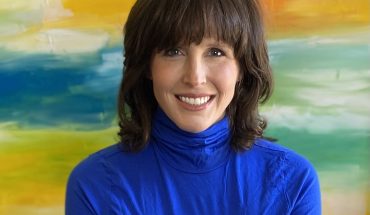
Raleigh comics goof it up before a show at King’s. left to right top row: Ryan Higgins, Tracy Cate, Mick McKenna; middle row: Thomas Dixson, Julia McClung, Adam Cohen; bottom row: Shane Smith, Drew Robertson, Mello Mike Miller
by Billy Warden
photographs by Travis Long
“Is dad having an affair?” The teenager, finding her father absent on yet another weekday evening, plaintively put this question to her mom. And, yes. The father in question, Adam Cohen, was and is having an affair. With complete strangers in dark rooms. When it’s good, it’s riotously loud.
Even when it’s bad, it’s still worth the risk.
At the ripe age of 44, marketing executive Cohen had become a part-time stand-up comic. Hitting the stage at divey open mics. Swallowing his pride in hopes strangers would cough up a laugh for lines like, “When God closes one door, He opens a Starbucks.”
Three years after his start, Cohen – nuclear family still intact – is the co-founder of Raleigh’s Dangling Loafer comedy showcase, and a gray-whiskered big brother to a capital city stand-up scene most agree is chortling through a golden age.
Cohen himself seems reborn, or at least legally stoned. “The feeling of belonging between the other comics – I never thought I’d have that in my life.”
The blissed-out wonder in his face is a little goofy, yes, but also intriguing. Over the next three weeks, Cohen and cohorts agree to help me understand why they do it and how they do it – so that I can make my stand-up debut. So that I, a 40-something communications strategist, husband, and father of two – can walk the zig-zagging line between comedy and tragedy in search of acceptance, affirmation and an honest yuck.
Cast of characters
It’s Tuesday, open mic night, in the jagged basement pub at the 30-year-old club that has become legend on the stand-up circuit. The bar is strewn not with beer mugs and cocktail glasses, but notebooks bursting with scribble and scratch. Studious stand-ups pore over the pages, mouthing bits to test their rhythms.
The crowd of comics waiting to go on numbers at least 20; the crowd of “civilians” at most nine. But that’s fine. The comics are really here to perform for one person alone – Reven MacQueen, 26, the club’s tiny but mighty general manager and all-around coach. A strong showing down here in the basement could earn you a shot upstairs, where the headliners perform.
But before that nod goes to anyone, there will be blood, sweat and jeers.
Matt Mayle, a drop-in from Clayton, wins perky applause with self-deprecating riffs on his brilliant career choices. Switching from a band to stand-up comedy, he notes, is like announcing to your parents: “I’m moving out of the basement and back into my old bedroom.”
Then a burly, bearded man in his 20s strides to the mic. Immediately, the filth flies. The civilians giggle gamely – until the guy unloads a gag so foul it would redden the cheeks of a Motley Crue roadie.
The audience, now lethally silent, seems to recoil.
“OK. I will never … ever … use that joke again,” he croaks. But the civilians are beyond reconciliation. The comic staggers through his remaining two minutes like an extra in The Walking Dead.
As I contemplate my own upcoming debut, I realize: I don’t want to die like this.
What it takes
“People think, ‘Oh, I’m funny. I make my friends and family laugh. I can do this.’ But there’s a lot more to it than that,” notes J.M. Cortez, perched at the Goodnight’s bar, cocking a brow like a street smart private eye.
Mick McKenna adds, in a brogue that makes everything amusing, “Your family and friends know and love you. To make it work up there” – his eyes dart to the mic – “you have to know what’s funny to everyone.”
But how do you do that? Who knows the magic formula?
Every comic answers differently, but most mention the acerbic style of FX star Louis C.K. Scathing and cerebral, the fearless Louie revels in the darkest corners of his soul and love life. To wit: “If you’re a woman and a guy’s ever said anything romantic to you, he just left off the second part that would have made you sick if you could have heard it.”
Says Goodnight’s’ MacQueen, “We definitely are in a golden age of indy comedy, and I do think Louie has a lot to do with it. Even at the height of his popularity…he still represents the sad truth of the human condition – and that is what I think is crucial to stand-up.”
Essentially, Louis C.K. is a truth-teller. Not a manic master of the absurd like vintage Steve Martin. Not ironic, like Letterman. Not a joke juke box, like Leno. Louie and his acolytes observe and report. And that’s not so tough. Is it?
Sometimes with these affable amateurs, it seems laughs are almost – almost – beside the point. Like ice cubes in a cocktail, they’re important, but not the main event. For many, the joy is in raw self-expression and rowdy camaraderie.
“This has been life changing. It’s the most fun I’ve ever had,” beams Cohen. “I’m not going on the road; I’m in my 40s. This is all gravy. These are my people. We’re like a family with Tourettes.”
A different kind of family brought Tracy Cate to comedy. With her mother suffering from advanced Alzheimer’s, Cate was exhausted, “barely holding on at work … borderline desperate.” Amid this family tragedy, she found relief in an improv class.
Two years later, Cate is a fixture on Triangle stages, chronicling the foibles of a befuddled 40-ish bachelorette. “Comedy is the one thing in my life that requires 100 percent presence,” she says. “You can go to yoga and stress about work. You can go to work and stress about money or family. But when you go to a show, you are in that moment. And if it was a good set – whew, it makes me feel like I’m not just fumbling through life but that I’m pushing myself to accomplish something.”
Accomplishing what, exactly? For some, the moment is enough. Not for 26-year-old Thomas Dixson, though. The consensus pick for blazing-new-comet-on-the-block has ambitions beyond this circuit. He might head out on the road, he says, or make films. “I want to keep going,” he says. “I don’t want to feel like I’m ever at a stop.”
Dixson – who riffs on topics like being black in a mostly white school – takes a relaxed view of Raleigh. “This isn’t like L.A. or New York,” he shrugs, “where guys are competing for a TV show or a film role.”
Ryan Higgins, who cruises in from Chapel Hill to make the Raleigh rounds, agrees. “The stakes are a lot different here. It’s not, ‘I killed. I’m going on The Tonight Show!’ It’s more, ‘I killed … and now I’m going to my apartment … alone.’ ”
But Reven MacQueen at Goodnight’s says they shouldn’t be too self-deprecating. “I was nervous that the comics here would be delusional about their potential. But it’s been the opposite. Most don’t take their talent seriously enough. Most don’t even have Twitter.”
Like flirting
The one comic everyone seems to admire is Mello Mike Miller, Raleigh’s very own mystic on the mountain.
He whistles in and steals the scene without seeming to try, the man they call Mello. He isn’t even performing in tonight’s Dangling Loafer show at Kings, yet the scruffy room is his. Here someone wants a hug; there someone wants advice. The tattooed woman behind the bar can’t get enough of his sleepy eyes.
In fully, effortlessly inhabiting his status as a laid-back-legend, Mello, 41, also knows something stand up Julia McClung knows: “Comics think of themselves as nerdy,” she says, “but they’re actually very good flirts. Connecting with an audience is like flirting.”
Loose and lanky, Mello has been breezily coming on to audiences since his first outing at Goodnight’s 12 years ago. His repertoire includes both meandering stories and snappy asides like, “My girlfriend is sleeping with my best friend. I hate that they’re married.”
This sly proficiency led to gigs with Tracy Morgan, Billy Gardell and Dave Chappelle. He sauntered across the L.A. circuit for a year until the money ran out, and he returned to Raleigh. Because comedy still doesn’t pay all the bills, his “Clark Kent” day job has him washing cars at Bunkey’s.
On comedy, he dispenses wisdom with casual assurance.
“A lot of comics get nervous when it’s quiet. But quiet is not always bad. Quiet can mean people are actually listening.”
So, you don’t need to, as the old song goes, make’em laugh, make’em laugh, make’em laugh?
“Well. At some point. You better.”
What’s the key to landing the laugh?
“Rhythm. If I videotape one of my shows, I don’t watch it. I close my eyes and listen.”
How should the rhythm flow?
“Impossible to say. Every show is different because every crowd is different.”
The crowd. Eeesh. If each one is different, how do you know what to give them?
“You want to connect with the crowd, but you shouldn’t necessarily do what the crowd wants you to do. You want to bring them to you. You want to bring the crowd into your world.”
Hmm. So, in the end, what separates a good show from a bad show?
“The best shows aren’t the ones where someone says, ‘Great job.’ You don’t learn anything from a good show. You learn from the bad shows. And you have to keep learning.”
Thanks, Mello Mike. With my debut just a week away, that’s a great comfort.
It’s showtime
Doing stand-up for the first time is a car crash. The trip begins with high hopes. And then bam – the reality-warping skidding and crunching, the blur of sensory overload and the chilling details frozen in time.
I have three minutes at Tir Na Nog’s Cure for the Mondays open mic. To me, the set is as tight and tuned up as my new Hyundai. So I idle in the back, surrounded by other idling acts.
Hello John Boni, a former Three’s Company writer now retired to Raleigh, who bills himself as “the Silver Senior.” Friendly. Knowing. Indeed, silver. Hello to a lithe young amateur who is also a professional … pardon me? … ballet dancer? Oh, come on!
And SWOOSH – suddenly I’m veering onto the stage. The lights are angry. Every giggle and groan thunders. Too new at this to adopt a full-fledged persona, I instead go with a theme: the wide-eyed enthusiasm of an incorrigible optimist.
A kinky-haired blonde blurts appreciatively at an early one-liner (“The sun will come out tomorrow – as long as it doesn’t get shot over Texas.”) I love this woman. Deeply. She then balks at a scatological aside I should have dumped. Cut the wheel!
I careen through an extended riff on deploring the ‘one percent’ even as we all want to be in the one percent. “Bashing the rich is worse than hating yourself, it’s hating your ideal future self.” A bespectacled hipster raises his brows … yes … smiles … yes! … and nods. Ugh, the dreaded nod of recognition – sans the laugh.
The finale is boisterous enough to get a rise out of the group, and then in a flash I’m in the rear of the room again. Like a bandaged man coming to on a stretcher, I feel a bit outside my body. Adam Cohen and Tracy Cate hover above, smiling, congratulating.
I blink hard. Life returns to normal. Or does it? As Cohen takes the stage for what will be a barn-burning set, I find myself reaching for the wheel again, my foot hitting an imaginary gas pedal, and something unfulfilled inside yearn for an open road…strewn with banana peels.




